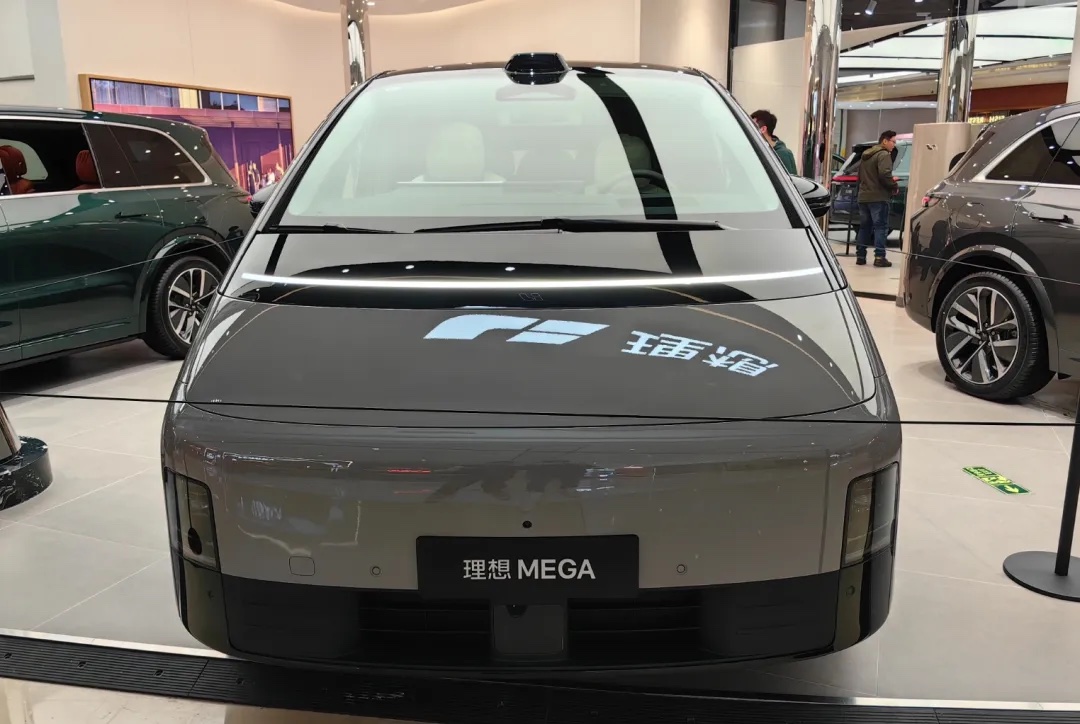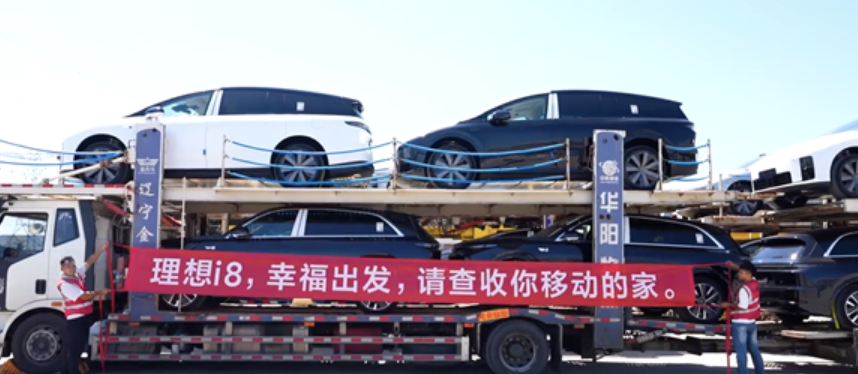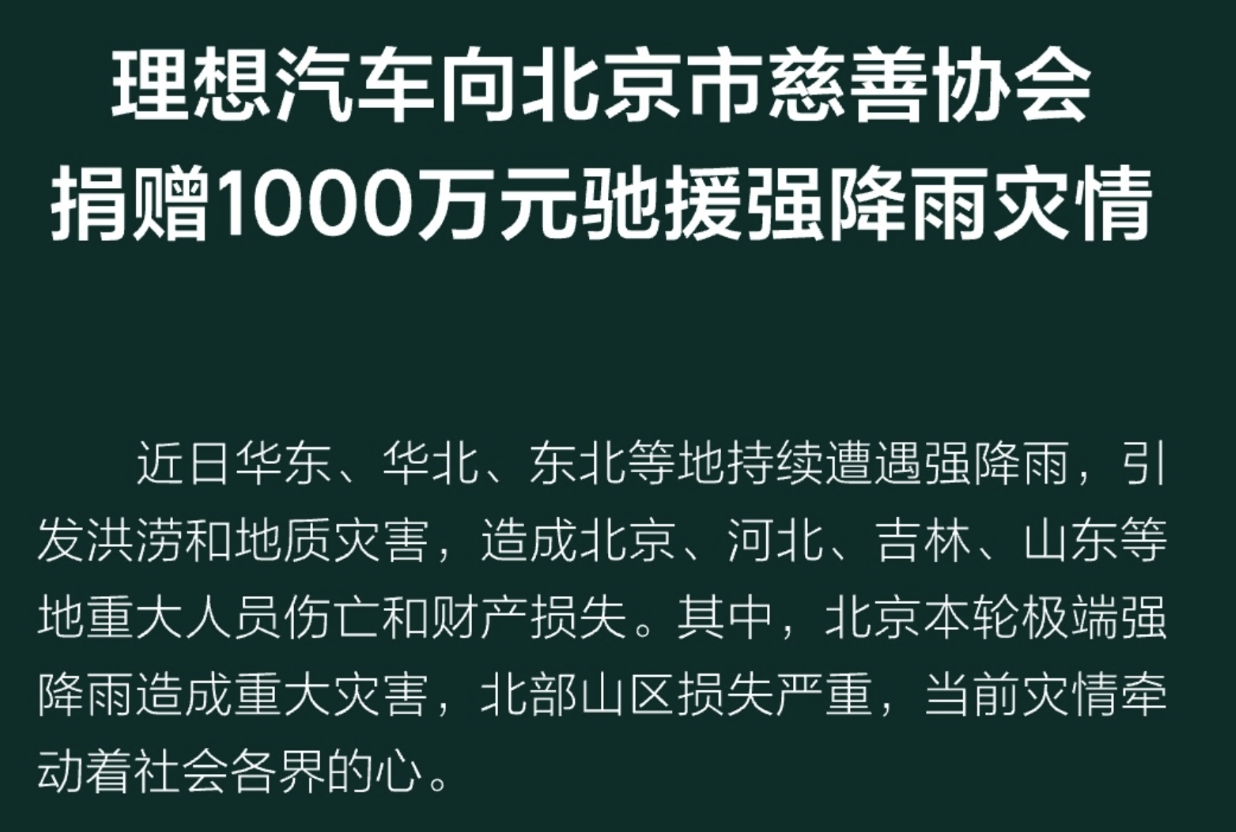March 26, LI Auto stopped publishing weekly sales data on a fixed Tuesday. It is understood that since April last year, LI Auto broke the惯例 of the automotive industry to release monthly sales and took the lead in releasing weekly sales data. At that time, LI Auto was in the launch period of three models in the L series, and its sales were stable and rising. This move also caused a public outcry and was once forced to stop, but LI Auto insisted on releasing it and led other automotive companies and industry media to follow suit, and the automotive industry entered the level of competing by weekly sales.
The market believes that this change in behavior may be affected by sales. LI Auto’s sales have continued to decline for three consecutive weeks, and it has been consistently suppressed by the JIANGHUAI AUTO. This may be one of the reasons. However, AutoTimes believes that the biggest reason is still LI Auto’s decision. After the failure of Ideal MEGA, Li Xiang, CEO of LI Auto, wrote in an internal letter, “There is an issue of excessive focus on sales, and we will lower expectations and desires for sales and return to healthy growth.” The market believes that the most direct impact may be that LI Auto will no longer disclose weekly sales.
Although LI Auto will no longer produce the weekly sales chart, there will always be “someone” who will make it. From the sales list of new energy brands in the Chinese market (March 17-March 24), BYD and Tesla are both above 10,000 vehicles, with BYD continuing to top the sales list with 57,672 vehicles, followed closely by Tesla and Wuling Automobile, with 13,577 vehicles and 8,122 vehicles respectively. Hongmeng Smart Driving (JIDU) is 7,757 vehicles, which ranks one place lower than the previous week. In addition, brands with sales of more than 5,000 vehicles are also AION and LI Auto, with 7,365 vehicles and 6,892 vehicles respectively, and LI Auto’s ranking also slipped one place. The seventh to tenth rankings are Zero Run Automobile, Volkswagen, Changan Qiyuan, and NIO.
From the sales list of new energy vehicle brands in the Chinese market, the sales of JIANGHUAI AUTO are still higher than those of LI Auto, with 7,524 vehicles for the former and 6,892 vehicles for the latter, with a sales gap of 632 vehicles between the two auto companies. Since 2024, LI Auto has been outperformed by JIANGHUAI AUTO, which has brought tremendous sales pressure to LI Auto. Data shows that the L7 + L8 + L9 is still suppressed by the M7. The weekly sales of the L7 is 2,537 vehicles, the L9 is 1,967 vehicles, and the L8 is 1,354 vehicles, while the M7 sales are 5,807 vehicles. The sales of the three models are barely higher than the M7. In addition, the M9 sales are 1,488 vehicles.
In order to change the market trend, LI Auto brought the 2024 L series on March 1, upgraded the configuration while keeping the price unchanged. This is actually a way of indirect price reduction. However, compared with direct price reduction, this way of “adding configuration without increasing the price” is not easy for the market to accept. On March 12, LI Auto officially announced the renaming and price reduction of the vehicle series. The model naming of L7 and L8 was adjusted from Air, Pro, and Max to Pro, Max, and Ultra, and a new Air version (with air suspension removed) was added. The prices were 301,800 yuan and 321,800 yuan respectively, with a 18,000 yuan reduction compared to the 2023 model. In addition, the L9 Max was also adjusted to L9 Ultra, and the price remained unchanged. Li Xiang said that with the launch of the new car, the delivery level in March will return to 50,000 vehicles.
Highly concerned by the market, and also the next blockbuster in Li Xiang’s mouth, MEGA was officially delivered on March 11, with a weekly cumulative delivery of 1,031 vehicles, ranking fifth in the MPV market and second in the new energy MPV market, while the sales last week were 1,058 vehicles. As a pure electric MPV with a price of up to 550,000 yuan, MEGA’s weekly sales performance is actually not bad. First, the high price means that the audience is limited, and coupled with the fact that pure electric MPVs are not easy to sell, the possibility of MEGA’s big sale is basically small. Of course, if MEGA really becomes popular, it would truly be a disruptive presence in the market, after all, even the sales contribution of the EV version of Denza D9, which costs 300,000 yuan, is only 5%.
Not long ago, LI Auto announced a reduction in its annual sales target. Internal communication minutes show that due to the lower-than-expected sales orders, it is expected that the delivery volume in the first quarter of 2024 will be 76,000-78,000 vehicles. After the downward guidance, the annual sales target will change. The sales growth rate in 2024 will be 50%-70%, corresponding to a sales guide of 560,000-640,000 vehicles, which is a reduction of 160,000-240,000 vehicles compared to the previous 650,000-800,000 vehicles.
In addition, in response to various problems that have arisen after the listing of MEGA, LI Auto made it clear that even if the performance of MEGA is less than expected, there will be no pricing adjustments. Three aspects will be used to boost the market performance of MEGA: 1. Strengthen the construction of charging piles; 2. Further seize the core user group of MEGA; 3. Solve problems down-to-earth. For infrastructure construction, the latest guidance is to have more than 10,000 urban charging piles and more than 3,000 high-speed charging piles in 2024. It is understood that LI Auto has lowered its sales expectations for MEGA to 2,000 vehicles/month. After the above changes, it is expected to increase the monthly delivery volume to 4,000-5,000 vehicles in a single month in Q4. Previously, LI Auto’s monthly sales expectations for MEGA were 8,000 vehicles, and it challenged to be the first in the total category sales of more than 500,000 vehicles.
At present, LI Auto mainly relies on the L series to increase the volume. Although the L series product market is now suppressed by the WEY MOKA, the change in market share is not significant. LI Auto will not consider price reductions for the time being. LI Auto said that price reductions by luxury brands will have a negative impact on the brand power, especially for new models. Price reductions are nothing more than drinking poison to quench thirst. The Ideal L6 is likely to be launched after the 2024 Beijing Auto Show, with a monthly sales expectation of more than 20,000 vehicles.



